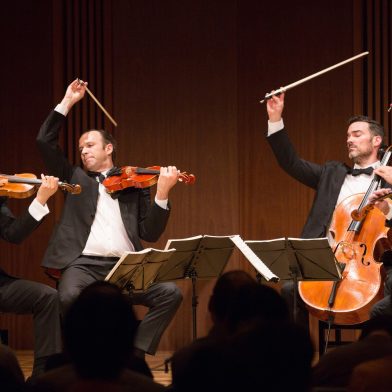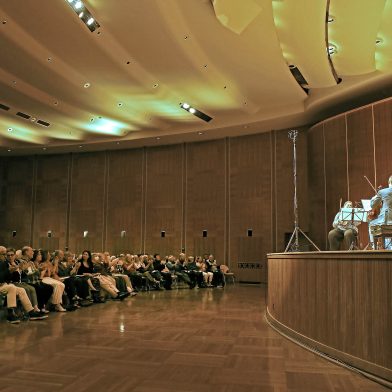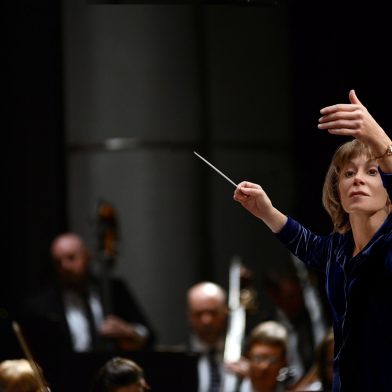Buffalo’s Theater Menu: A Conversation with Anthony Chase
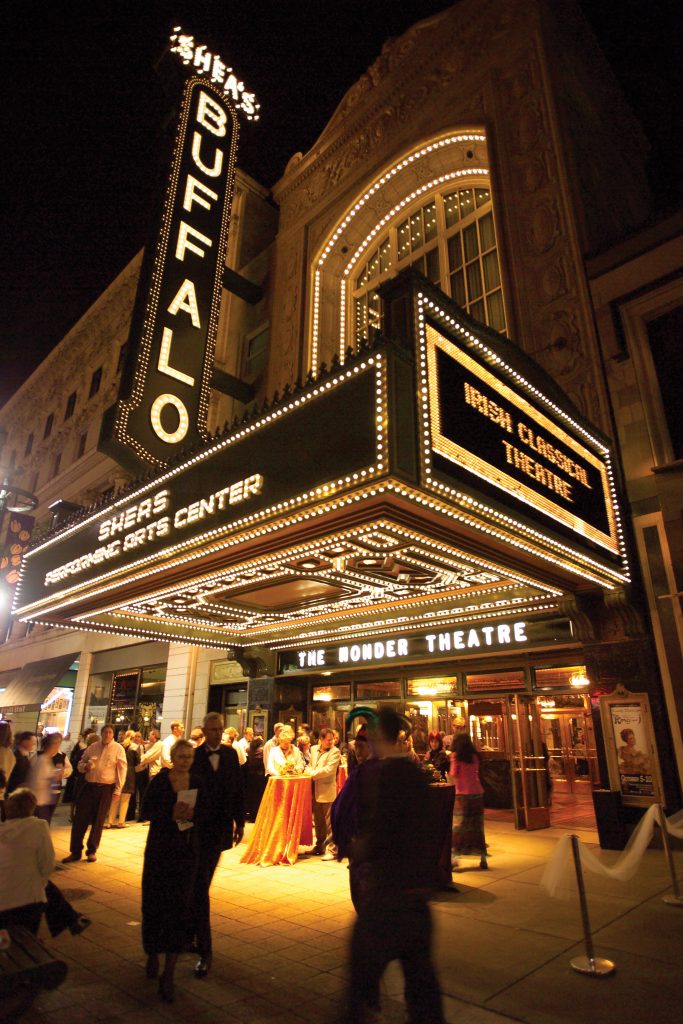
Fall is when the curtain lifts on theater season and the shows begin on stages throughout Buffalo. The roots of such abundance – more than 20 theaters and production companies — go back to the city’s 19th century Erie Canal history. Yet, the variety can be daunting for the uninitiated.
Buffalo theater maven Anthony Chase suggests that people consider the options as they would dishes on a menu. Narrow them down similarly: Select comedy, drama, musical or a new production. “There’s a lot of diversity, which should actually make your choices easier,” he said.
Chase, assistant dean at Buffalo State University’s School of Arts and Sciences, is a longtime theater critic for Buffalo publications, the author of theater news at theatertalkbuffalo.com and, for the last 30 years, the host of the weekly “Theater Talk” show on public radio station WBFO.
His advice: Take a seat. You can see a Broadway show at the grand 1926 former movie palace at Shea’s Buffalo. Down the street, productions open at the Alleyway Theatre within the 1941 Art Moderne building that was once a Greyhound bus terminal. See classic plays at the Irish Classical’s theater in the round. Try a comic musical at D’Youville Kavinoky. Unravel the avant-garde at Torn Space. Buffalo, said Chase, has an unusually high number of theaters for a city of its size. And, he added, they are “of surprisingly good quality.”
Visit Buffalo Niagara’s Michelle Kearns spoke to Chase about the Buffalo theater scene and his passion for live performance.
How does a person figure out what to see in Buffalo? Explain your menu concept.
Chase: Just look at the list of offerings in a given week. Let’s say, “This weekend with friends I’m going to do something special.” And then you can begin, as you would with any menu, to make decisions. What are their ticket prices? How much was I looking to pay? Is that immaterial? Am I looking for a comedy? Am I looking for a musical? Am I looking for a drama? Am I looking for a title that I’m familiar with? Or, am I willing to go out and take a chance?
An incentive to go to the theater while you’re in Buffalo: Look what a ticket to “Hamilton” costs on Broadway and then look at what that same exact show would cost at Shea’s. A fraction of the price.
VBN: Why do people hesitate to buy tickets?
Chase: I get sort of confused by people. Someone said to me, “Well, I went to a play once and I didn’t like it.” I said, “Yeah, and I bet you went to a ball game once and your team lost. Did you stop going? You read a book once that you didn’t finish. Did you stop reading?” I don’t understand why people put such a high bar for the theater. I’m obsessed with the theater. I go all the time.
A live experience is a once in a lifetime kind of thing. I guess that’s the expectation: that the theater should be such a momentous occasion. So, people ask me what excites me about the season. I don’t really think of the season that way because it’s my intention to see everything. I will know retrospectively what has excited me.
VBN: Where does your passion for theater come from?
Chase: I’ve been in 10,000 audiences and I cry at the theater frequently. I think it is a capacity for empathy and I’m kind of addicted to that. Entering the life of fictional characters and experiencing real emotions through empathy with what I’m seeing on the stage. Whether it’s tragedy or joy – I am obsessed with that.
VBN: So, it was the Erie Canal that started the Queen City’s love affair with the stage, soon after the water route connected Buffalo to the Hudson River in 1825?
Chase: All the major tours came here because we were the transportation nexus of the nation. That is what made Buffalo great in the first place … The Erie Canal opened New York harbor. It opened the East Coast to the Midwest. And theater tours followed along the same lines … We also became a colossal center for vaudeville and burlesque … Buffalo never lost its appetite for live entertainment. Never.
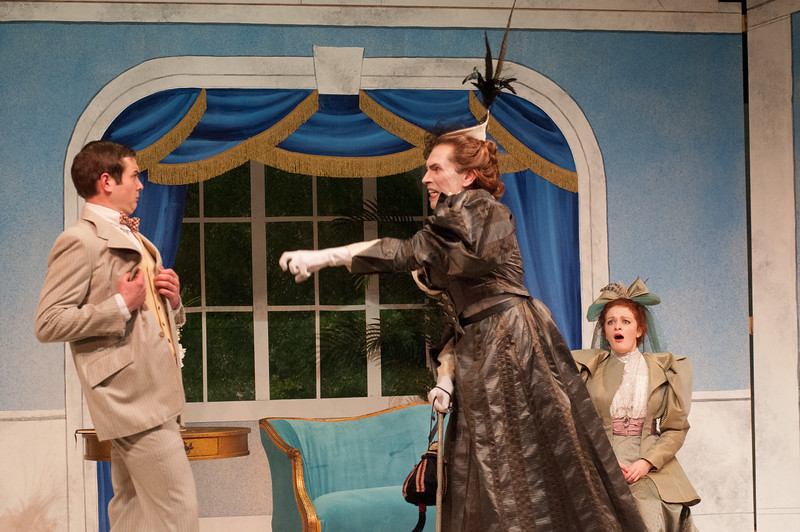
VBN: You say the modern forces that forged Buffalo’s theater scene included the bargain downtown rents that followed the end of steelmaking and city’s hard times.
Chase: The economic collapse in the 1970s and 80s made a lot of real estate available, which is getting to be dicey now. It used to be a theater company could rent a storefront on Main Street in the ‘80s. Now it’s very, very difficult.
VBN: You also credit the talented graduates of theater programs at local colleges and universities like University at Buffalo, Buffalo State College, Niagara University and the State University of New York at Fredonia.
Chase: There are always hungry young people.
VBN: How have the free summer performances at Shakespeare in the Park shaped the community since they started almost five decades ago?
Chase: If you grew up in Buffalo, your family could take you to two Shakespeare plays a summer, for free, for your whole growing up. So, by the time you get to high school, by the time you get to college, people ask: “Do you know Romeo and Juliet?” “Well, I’ve seen it twice.” If you’re a Buffalonian, if your family is geared toward arts and culture, that’s totally available to you. So yes, it is rather a lot.
VBN: You moved to Buffalo after college because your brother was here. How did you wind up staying here for your entire career?
Chase: The brilliant thing about Buffalo is that it’s immediately accessible. Within a week, I was working backstage at the Playhouse, which was a little theater on Main Street. Any dream you have in Buffalo, you can fulfill that dream pretty quickly. You want to be on radio? You can get on radio. You want to get involved in politics, you can get involved in politics. You can do anything. And, I think that’s still true about Buffalo. It’s a great place to live your dream.

